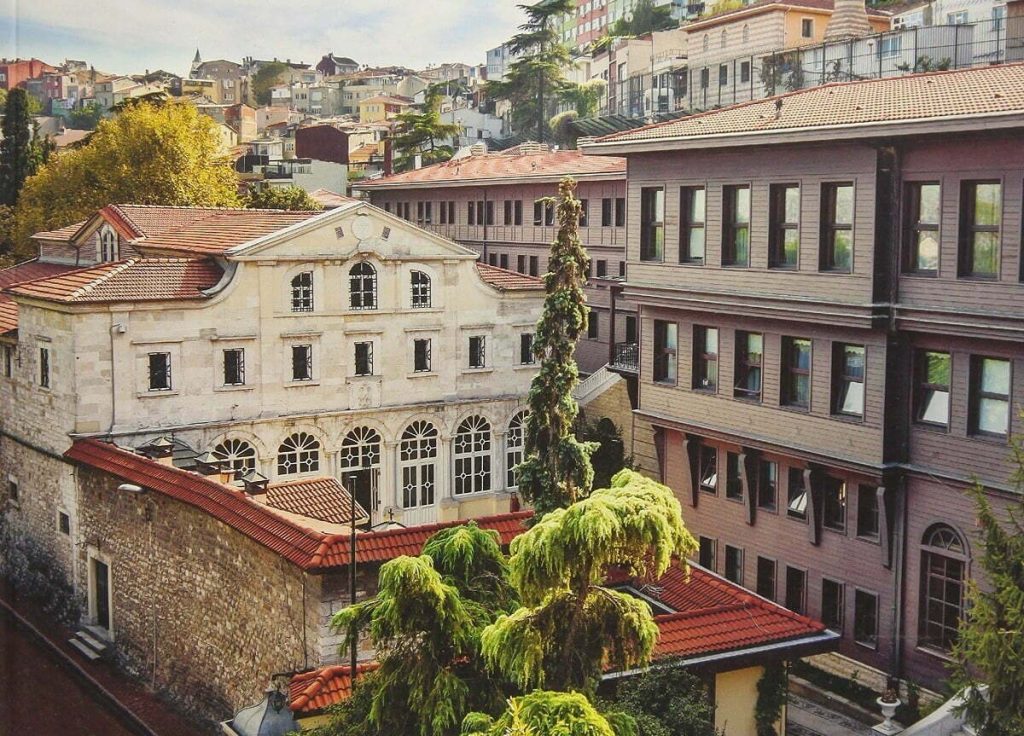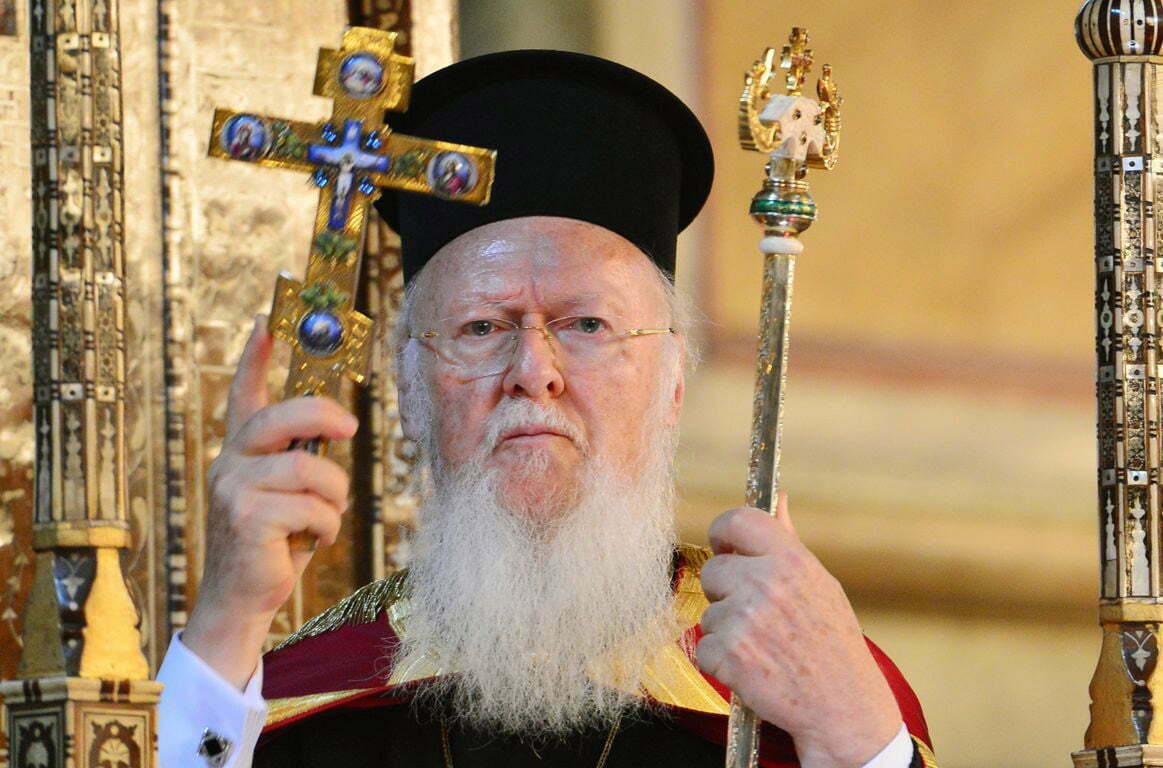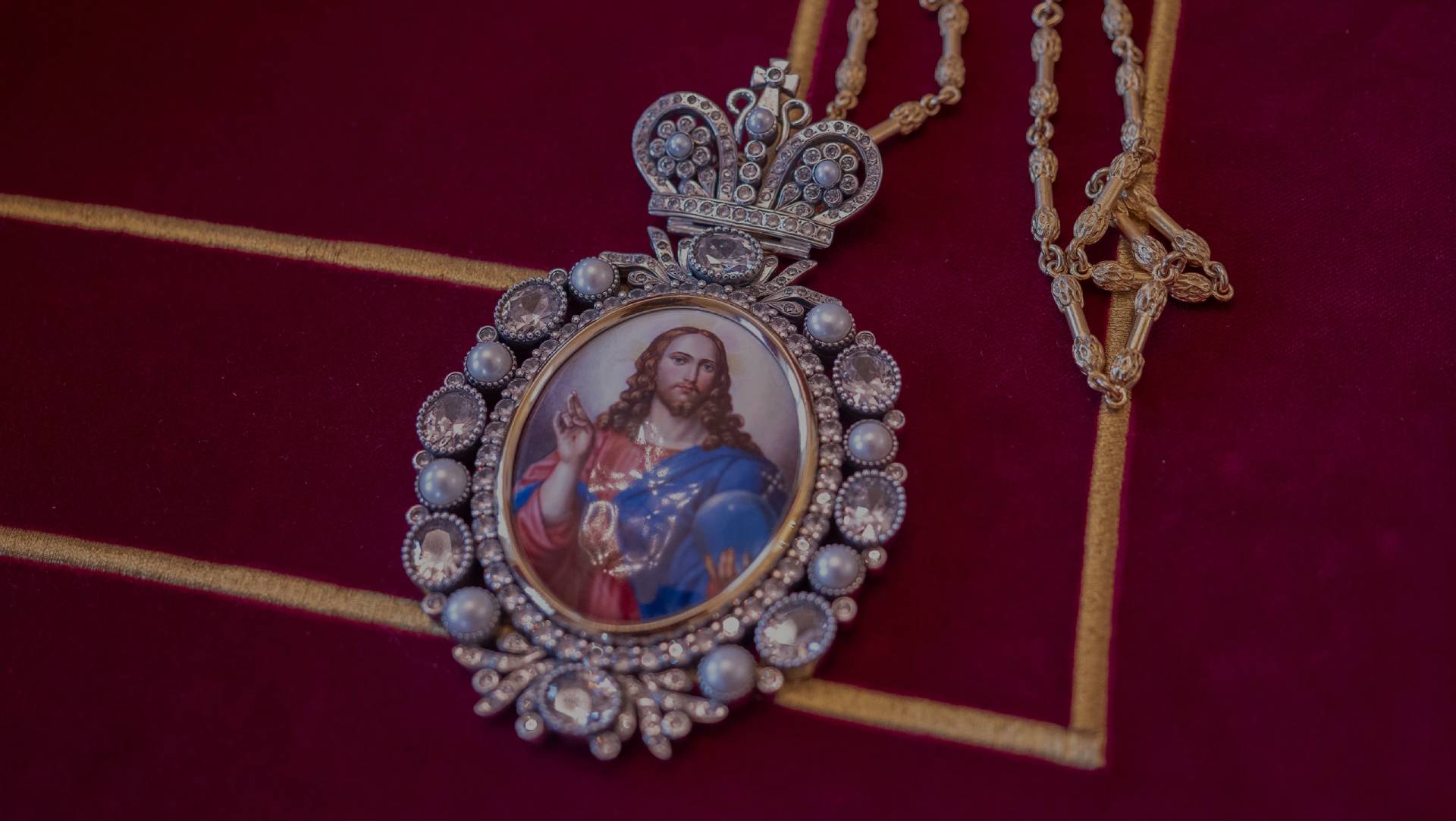Ecumenical Patriarchate
- Ecumenical Patriarchate
- His All Holiness Bartholomew
Ecumenical Patriarchate
In 330AD the Roman Emperor St Constantine the Great inaugurated his new capital on the foundations of the ancient Greek city of Byzantium. Located on the western shores of the Bosphorus and commanding an enviable geographic and strategic position as the bridge between Europe and Asia, the city of New Rome or Constantinople – city of Constantine, as it became known – soon became the preeminent Christian centre of the East as the seat of the Christian Roman Emperor for over 1000 years.

Traditionally it has been accepted that Christianity was brought to Byzantium very soon after the death and resurrection of our Lord Jesus Christ by St Andrew the Apostle with the first bishop of Byzantium being the Apostle Stachys (38-54AD). As the imperial capital New Rome- Constantinople was raised to the status of an Archdiocese and then a Patriarchate ranking second in honour to the See of Old Rome and before the Sees of Alexandria, Antioch and Jerusalem (Canon 3 of the 2nd Ecumenical Synod – 381). Eventually it was raised to equal status with the old Roman capital by virtue of Canon 28 of the 4th Ecumenical Synod (451). This Canon also gave the Church of Constantinople direct jurisdiction over the provinces of Pontus, Asia and Thrace and the right to ordain bishops for the barbarian lands beyond. Canons 9 and 17 of the same Synod granted the Church of Constantinople the right to adjudicate as the final court appeal in ecclesiastical disputes emanating from outside the regions in its direct jurisdiction. In 588 St John the Faster, Archbishop of Constantinople (585-595) adopted the title of ‘ecumenical patriarch’ as a sign of the preeminent status of his Church with the Byzantine world and beyond.
Missionaries sent by the Church of Constantinople evangelised the Slavs in the ninth and tenth centuries and established dioceses throughout the Balkans and the Russian lands. The Church of Russia became autocephalous (independent) in 1448 and was raised to the status of a Patriarchate by Constantinople in 1589.
With the Fall of Constantinople to the Ottoman Turks in 1453 the ‘Great Church’ found itself in extraordinarily reduced circumstances as a captive to its Moslem overlords. Nevertheless it continued to provide spiritual leadership to all the subjugated Christians of the Ottoman Empire. Since 1586 the Ecumenical Patriarchate has had its headquarters in the relatively modest Church of St George in the Phanar district of Istanbul (as Constantinople is now called). Following the break up of the Ottoman State in the 19th and early 20th centuries and the rise of nationalism in the Balkans the Ecumenical Patriarchate was compelled to grant autocephaly to the emerging national churches including Greece, Serbia, Romania, Albania and Bulgaria.
The current territory of the Patriarchate is significantly reduced from what it was at its height. Its canonical territory currently includes most of modern Turkey, northern Greece and Mount Athos, the Dodecanese and Crete. On the basis of Canon 28 of Chalcedon, Constantinople also claims jurisdiction over all areas outside the canonically defined territories of other Orthodox churches, which includes the entire Western hemisphere, Oceania, the United Kingdom, Western Europe, Northeast Asia, Southeast Asia.
The Orthodox presence in Turkey itself is small; however the majority of Orthodox in North America are under the Ecumenical Patriarchate, primarily in the Greek Diaspora but also in the Albanian, Rusyn and Ukrainian jurisdictions which are part of the Patriarchate. The Patriarchate also enjoys a significant presence in Australia and the United Kingdom, again primarily through the Greek Diaspora. In recent decades missionary dioceses have also been established in Asia.
The Ecumenical Patriarchate today holds first place in honour among the fifteen autocephalous jurisdictions that comprise the one Orthodox Christian Church which is bound together in a communion of common faith and mutual love. It acts in the capacity of an intermediary and facilitator between the autocephalous Churches and also in relations with other Christians and religions. It coordinates the other Orthodox Churches in ecumenical and inter-faith dialogues and in recent times has played a leading role in engaging with all people of goodwill in common matters of concern, most notably on the issues of peace, justice and the environment.
His All Holiness Bartholomew
His All Holiness, BARTHOLOMEW, Archbishop of Constantinople, New Rome and Ecumenical Patriarch is the 270th successor of the 2,000 year-old local Christian Church founded by St. Andrew. As a citizen of Turkey, Patriarch Bartholomew’s personal experience provides him a unique perspective on the continuing dialogue among the Christian, Islamic and Jewish worlds. He works to advance reconciliation among Catholic, Muslim and Orthodox communities, such as in former Yugoslavia, and is supportive of peace building measures to diffuse global conflict in the region.

As Archbishop of Constantinople and New Rome, Patriarch Bartholomew occupies the First Throne of the Orthodox Christian Church and presides in a fraternal spirit among all the Orthodox Primates. The Ecumenical Patriarch has the historical and theological responsibility to initiate and coordinate actions among the Churches of Alexandria, Antioch, Jerusalem, Russia, Serbia, Romania, Bulgaria, Georgia, Cyprus, Greece, Poland, Albania, The Czech Land and Slovakia, Ukraine, Finland, Estonia, and numerous archdioceses in the old and new worlds. This includes the convening of councils or meetings, facilitating inter-church and inter-faith dialogues and serving as the primary expresser of Church unity as a whole. As Ecumenical Patriarch he transcends every national and ethnic group on a global level and today is the spiritual leader of approximately 250 million faithful world-wide.
In his person, Patriarch Bartholomew represents the memory of the life and sacrifice of the martyred Orthodox Church of the 20th Century. After ascending the Ecumenical Throne in 1991, he journeyed throughout the Orthodox and non-Orthodox world bringing a message of restoration and renewed hope. He has presided over the restoration of the Autocephalous Church of Albania, the Autonomous Church of Estonia and the Autocephalous Church of Ukraine and has been a constant source of spiritual and moral support to those traditionally Orthodox countries emerging from decades of wide scale religious persecution behind the Iron Curtain. The Patriarch is a living witness to the world of Orthodoxy’s painful and redemptive struggle for religious freedom and to the innate dignity of humankind.
Patriarch Bartholomew strives earnestly to prepare the Orthodox Church for its continuing role as a mediator between East and West. In his capacity as Ecumenical Patriarch, he has three times convened the leaders of the self-governing Orthodox Churches around the globe, challenging them to vigorously pursue solutions to the challenges of the new millennium, for example, by categorically condemning nationalism and fanaticism. Together with Popes John Paul II, Benedict XIII and Francis, Ecumenical Patriarch Bartholomew has supported progress toward the reconciliation of the Roman Catholic and Orthodox Christian Churches.
Patriarch Bartholomew’s roles as the primary spiritual leader of the Orthodox Christian world and a transnational figure of global significance continue to become more vital each day. He co-sponsored the Peace and Tolerance Conference in Istanbul (1994) bringing together Christians, Muslims and Jews. Most noted are his efforts in environmental awareness, which have earned him the title “Green Patriarch.” He has organized environmental seminars in co-sponsorship with the late Prince Philip, and international environmental symposia on Patmos (1995) and around the Black Sea (1997). Since 1999 three other Religion, Science and the Environment International Symposia took place under the joint auspices of Ecumenical Patriarch Bartholomew and Mr. Romano Prodi, President of the European Commission: Symposium III, which sailed down the Danube River; Symposium IV: “The Adriatic Sea: A Sea at Risk, a Unity of Purpose” (June 2002) and Symposium V: “The Baltic Sea: A Common Heritage, A Shared Responsibility” (June 2003). These endeavours, together with his inspiring efforts on behalf of religious freedom and human rights, rank Ecumenical Patriarch Bartholomew among the world’s foremost apostles of love, peace and reconciliation for humanity, a reason for which he was awarded the Congressional Gold Medal by the U.S. Congress.
